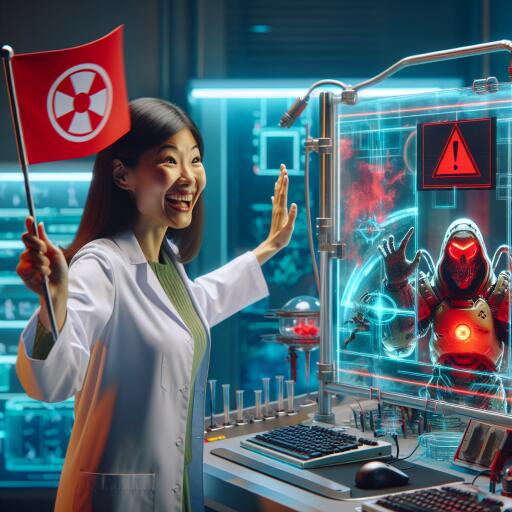Microsoft Scientist Engineers AI to Play DOOM, Sparks Dialogue on Ethics and Applications
In a groundbreaking experiment that sounds straight out of a sci-fi novel, Adrian de Wynter, a principal applied scientist at Microsoft and a researcher at the University of York, England, has managed to get AI to not just play but interact with the classic video game DOOM. However, this achievement has led de Wynter to issue a cautionary statement about the potential implications of such advanced AI systems.
In his research paper titled “Will GPT-4 Run DOOM?”, de Wynter explores the capabilities of OpenAI’s latest large language model, GPT-4V, or GPT-4 with Vision. Contrary to its predecessor, GPT-4V incorporates the ability to process images, making it capable of playing DOOM in a unique, indirect manner.
To accomplish this feat, de Wynter developed a novel method which involves a ‘Manager’ that captures screenshots of the game and sends them to GPT-4V. The AI then analyses these images and returns descriptions of the game’s environment, which are in turn processed by the Manager to determine the next moves. These moves are then translated into keystroke commands by an ‘Agent’ model, effectively allowing the AI to play the game.
Wynter’s experiments showcased that GPT-4V could navigate DOOM’s virtual world, engage in combat, and make strategic decisions, though with varying degrees of success. He humorously notes, “GPT-4 can play Doom to a passable degree. Now, ‘passable’ here means ‘it actually does what it is supposed to, but kinda fails at the game and my grandma has played it way better than this model’.”
One of the significant challenges encountered was the AI’s lack of object permanence, affecting its ability to remember and track the location of enemies once they move out of sight. This limitation often led to the AI forgetting about threats and consequently getting trapped or ambushed.
Despite these shortcomings, de Wynter acknowledges the remarkable nature of this achievement, given that GPT-4V had no prior experience or specific training in playing DOOM. He suggests that this technology could revolutionize automated video game testing by simulating human-like playing patterns.
Yet, de Wynter’s achievement comes with a word of caution. He highlights the ease with which he could program the AI to perform tasks such as “shooting” in the game without the model questioning its instructions. This capability, while impressive, raises ethical questions about the application and development of such AI, particularly concerning its potential misuse.
De Wynter writes, “On the ethics department, it is quite worrisome how easy it was for (a) me to build code to get the model to shoot something; and (b) for the model to accurately shoot something without actually second-guessing the instructions.” This statement invites a broader conversation on the constraints and guidelines necessary to govern AI technology’s evolution to ensure it serves humanity’s best interests.
As AI continues to evolve and integrate into various aspects of life, including entertainment and gaming, the experiments of researchers like Adrian de Wynter underscore the importance of considering the ethical implications of AI’s capabilities. The fascinating case of AI playing DOOM not only showcases the growing prowess of AI technology but also emphasizes the necessity of approaching its development with caution, responsibility, and foresight.










